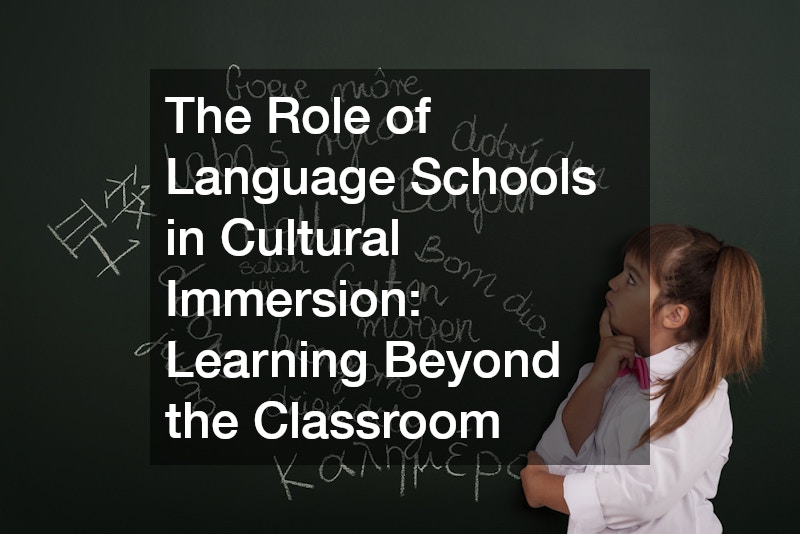Language schools play a crucial role in not only teaching new languages but also immersing students in the cultures that speak them. This cultural immersion goes far beyond the confines of a classroom, offering learners a rich, holistic experience that deepens their understanding and appreciation of the language.
Learning Through Cultural Experiences
One of the primary ways language schools facilitate cultural immersion is by integrating cultural activities into their curriculum.
These activities might include traditional cooking classes, cultural festivals, city tours, and interactions with native speakers. By engaging in these experiences, students gain a firsthand understanding of the cultural context in which the language is used, making their learning experience more meaningful and memorable.
Building Real-World Connections
Language schools often encourage students to practice their language skills in real-world settings. This might involve visiting local markets, participating in community events, or even staying with host families. Such experiences allow students to apply what they’ve learned in practical situations, helping them to develop fluency and confidence while also forming genuine connections with the local community.
Enhancing Global Awareness
Attending language schools abroad provides an opportunity for students to become more globally aware. By living and studying in a different country, they are exposed to new perspectives, customs, and ways of life. This exposure fosters a deeper understanding of global diversity and promotes empathy and respect for other cultures.
In conclusion, language schools offer more than just language instruction; they provide a gateway to cultural immersion that enriches the learning process. By stepping outside the classroom and into the culture itself, students gain a comprehensive education that extends beyond words, ultimately leading to a more profound mastery of the language and a greater appreciation for the world around them.
.


